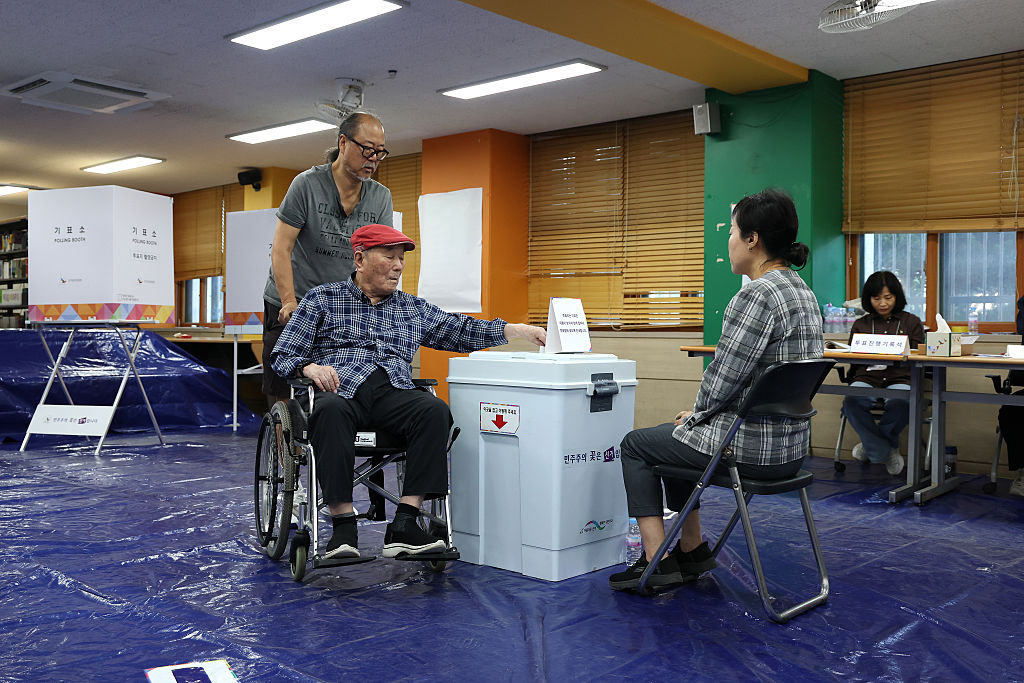South Koreans were voting for a new president on Tuesday to cap six months of turmoil triggered by a shock martial law briefly imposed by former leader Yoon Suk Yeol that marred the country’s reputation as a vibrant, if at times chaotic, democracy.
The new leader will face the challenge of rallying a society deeply scarred by the attempt at military rule and an export-heavy economy reeling from unpredictable protectionist moves by the United States, a major trading partner and a security ally.
Turnout is expected to be high with polls open between 6 a.m. (2100 GMT Monday) until 8 p.m. following early voting when more than a third of the 44.39 million eligible voters cast their ballots.
As of 11 a.m., 8.1 million people, or just over 18% of the electorate, had voted at 14,295 polling stations around the country, according to the National Election Commission.
Leading candidates ended three weeks of official campaigning late on Monday, crisscrossing the country before converging on Seoul for final rallies, as they vowed to put months of turmoil behind them and breathe new life into an ailing economy.
Both liberal frontrunner Lee Jae-myung and his conservative rival Kim Moon-soo have pledged change for the country, saying a political system and economic model set up during its rise as a budding democracy and industrial power are no longer fit for purpose.
Their proposals for investment in innovation and technology often overlap, but Lee advocates more equity and help for mid-to-low-income families while Kim has campaigned on giving businesses more freedom from regulations and labour strife.
Overshadowing any social policy initiatives, however, is Yoon’s botched attempt to impose martial law that has loomed large over the poll.
Lee has called the election “judgment day” against Kim and his People Power Party accusing them of having condoned the martial law attempt by not fighting harder to thwart it and even trying to save Yoon’s presidency.
Kim was Yoon’s labour minister when the former president declared martial law on December 3.
The conservative Kim, on the other hand, has branded Lee a “dictator” and his Democratic Party a “monster,” warning if the former human rights lawyer becomes president, nothing will stop them from working together to amend laws simply because they do not like them.
‘POLARISED’
The frontrunner Lee and his rival Kim cast their ballots during early voting last week. Yoon and his wife voted at a school near their private residence on Tuesday, appearing relaxed but ignoring questions as they left the polling station.
Regular voters in Seoul urged the next leader to ease discord and restore stability and address urgent challenges from the fallout of the crisis that have touched their families personally.
“The economy has gotten so much worse since December 3, not just for me but I hear that from everybody,” Kim Kwang-ma, 81, said. “And we as a people have become so polarised… and I wish we could come together so that Korea can develop again.”
Lee is favoured to win, according to polls released a week before the vote, leading Kim by 14 percentage points with 49% public support in a Gallup Korea survey, although Kim had narrowed an even wider gap at the start of the campaign on May 12.
Exit polls conducted by three television networks will be released at the close of the polls at 8 p.m. Ballots will be sorted and counted by machine first, then triple-checked by election officials by hand to verify accuracy.
It was not clear when the result would emerge. In 2022, Lee conceded to Yoon at around 3 a.m. the day after the vote in the closest presidential race in the country’s history, which was decided by a margin of less than 1 percentage point.
The National Election Commission is scheduled to certify the result on Wednesday and the winner’s inauguration is expected within hours. There will be no presidential transition as the office has remained vacant since Yoon was impeached by parliament and then removed by the Constitutional Court on April 4.
(Reuters)














